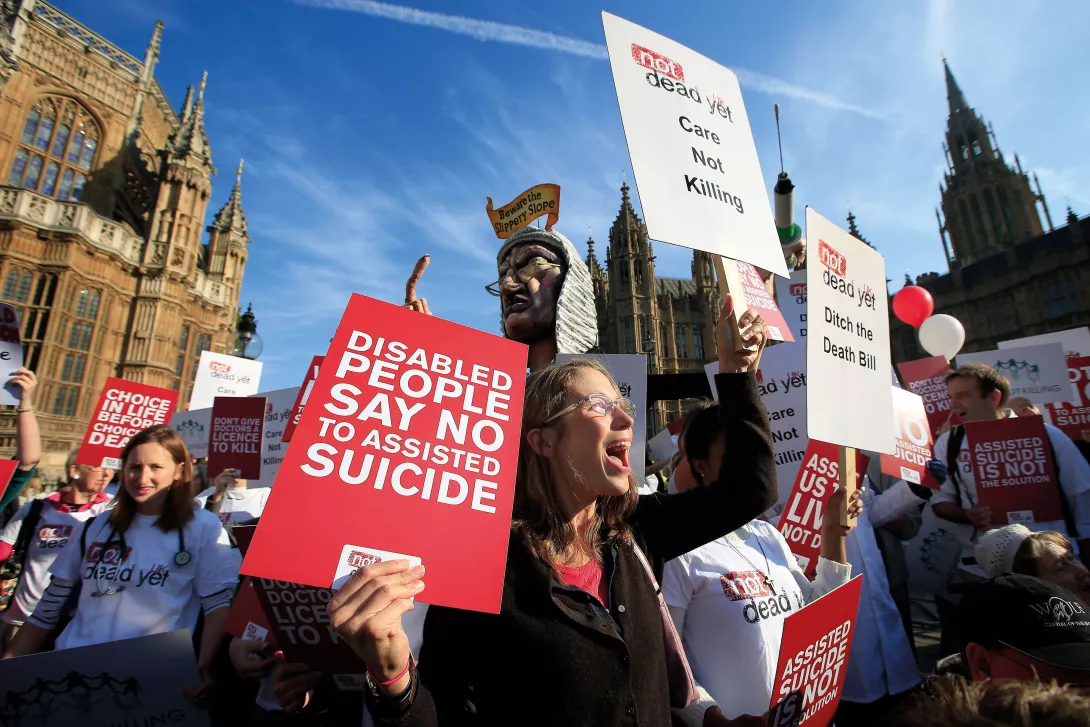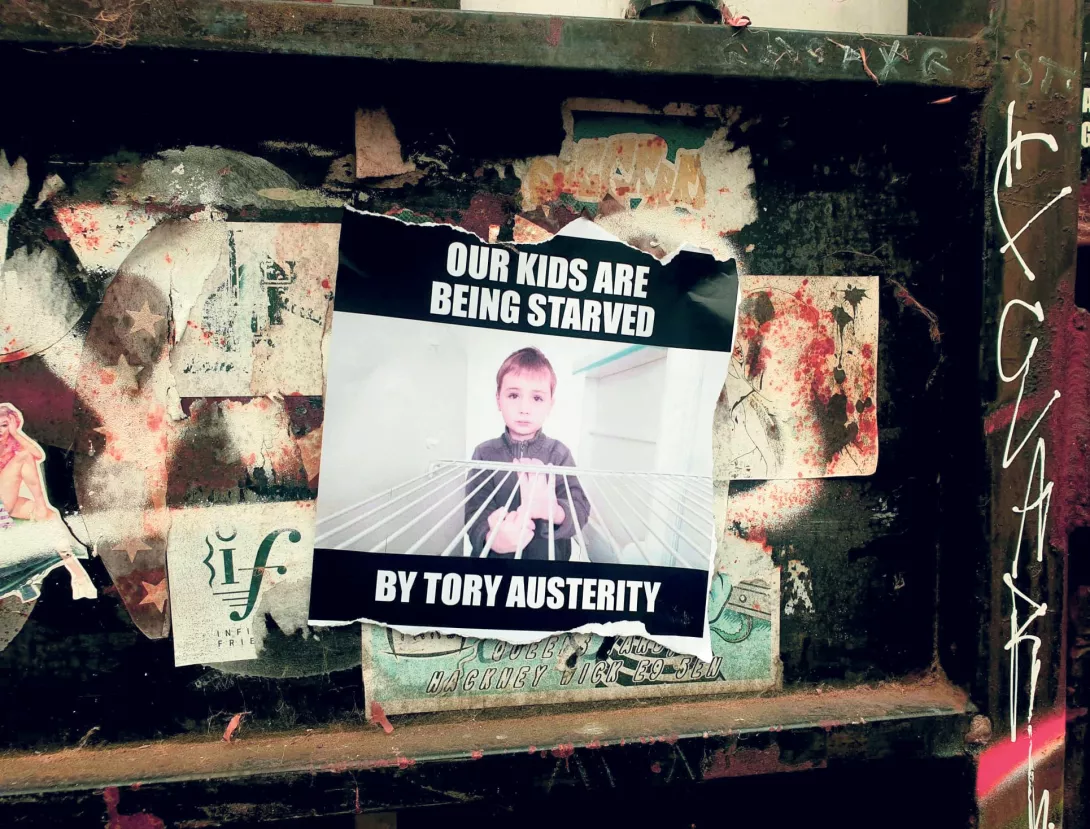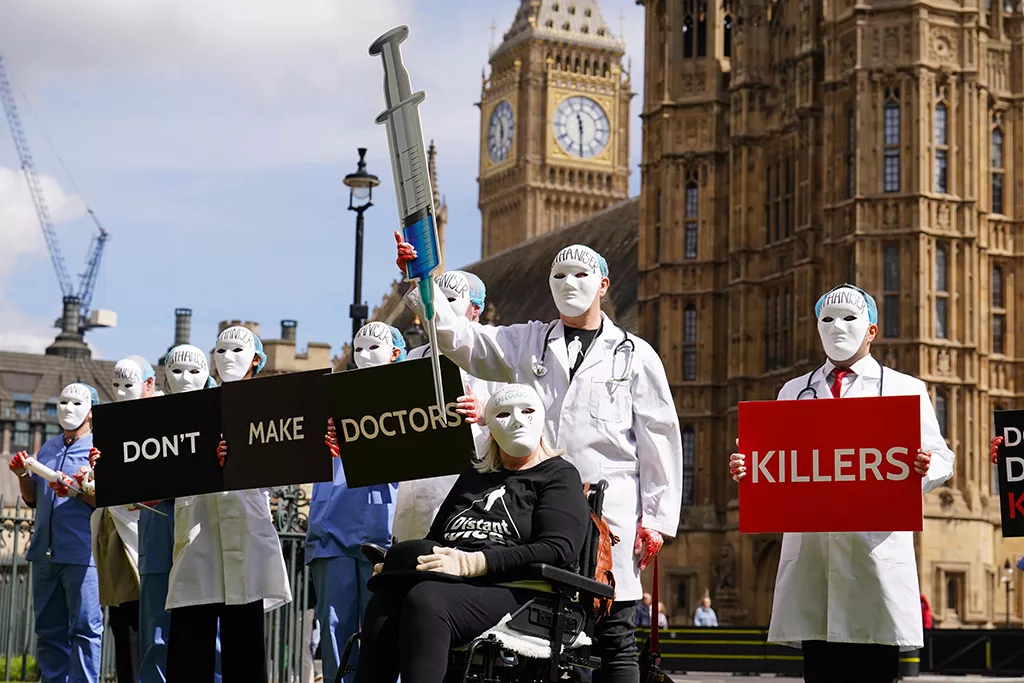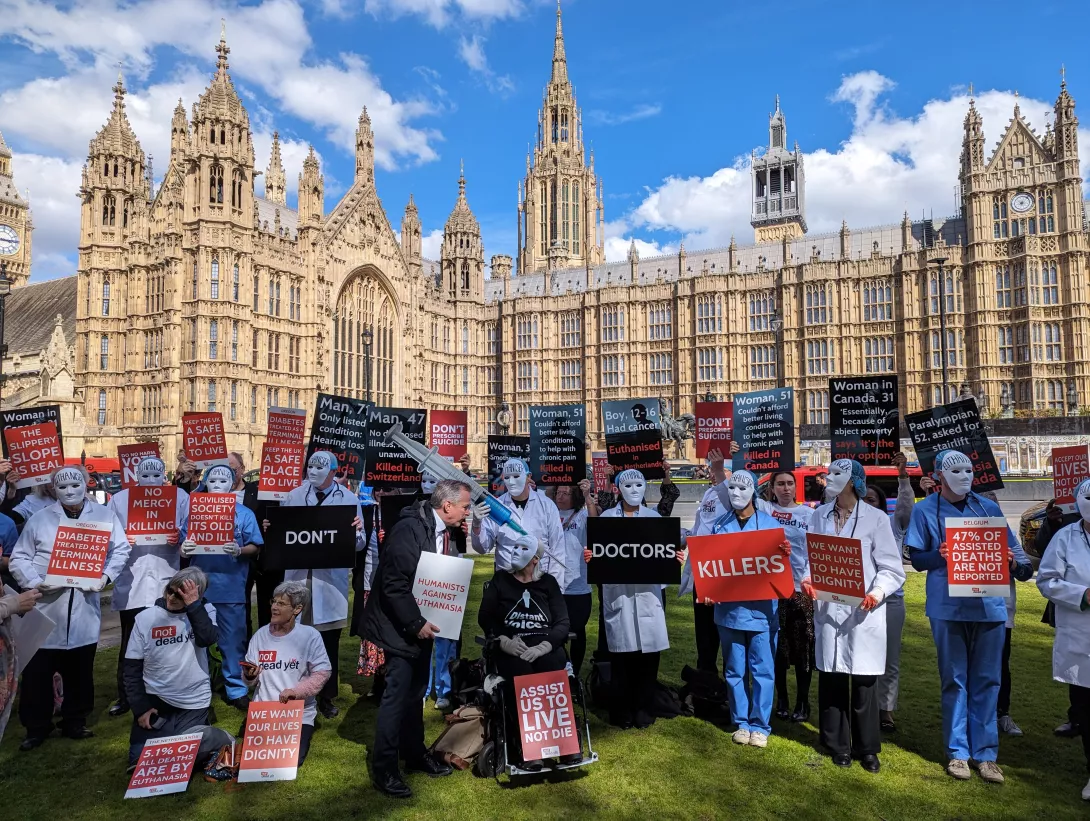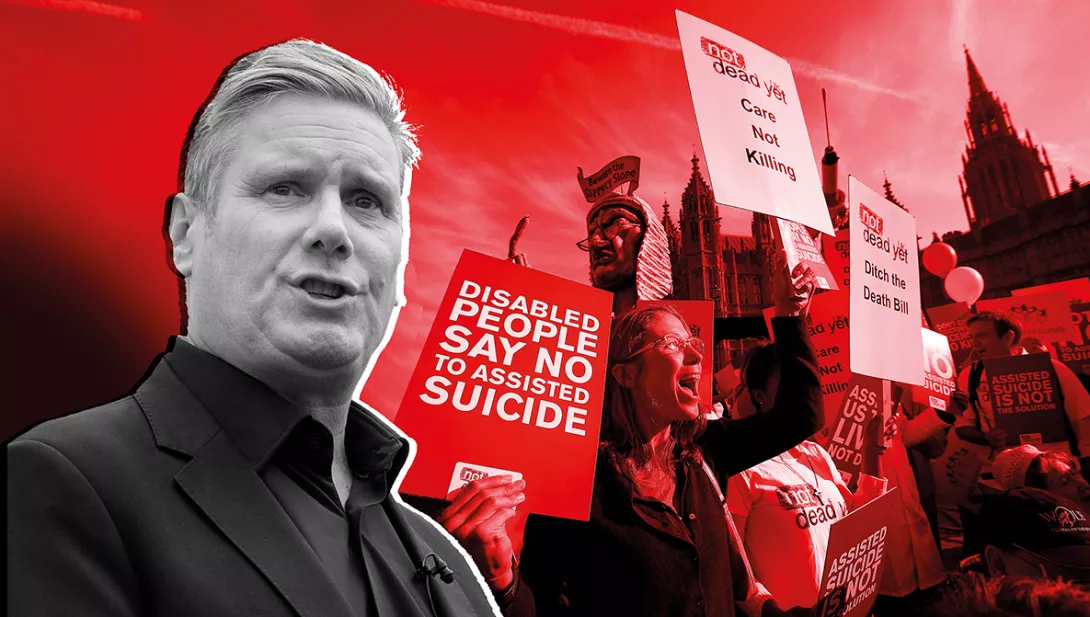
ASSISTED suicide and the highly emotive subject of its legalisation is again in the news.
Prime minister in waiting Keir Starmer has been busy telling press that, if elected, he will be in favour of giving parliamentary time for another vote on the question. This is part of heightened media interest prompted by Esther Rantzen’s call for a change in the law.
As someone with stage four lung cancer, she is treated as if she speaks on behalf of all those who will be affected. As is typical of coverage of this subject, the voices of disabled campaigners have been ignored in the mainstream media.
We are a not insignificant group of people whose lives are directly threatened by legalisation. Organisations run and controlled by deaf and disabled people are united in opposition, along with all the major disability charities.
Those who would be at the sharp end of a change in law have followed the impact of legalisation in other countries and US states, observing how safeguards have failed, how the scope of original legislation is frequently widened to include more groups of people and the human rights abuses that have occurred.
In 2014, Professor Theo Boer, a former proponent of legalisation in the Netherlands and member of one of the Dutch regional euthanasia review committees for nine years — which approved thousands of deaths — wrote in the Daily Mail that he “was wrong — terribly wrong.”
He said he now believed that the very existence of a euthanasia law turns assisted suicide from a last resort into a normal procedure. He was trying to warn Britain from going down the same “slippery slope.”
The British public is generally unaware of the potentially very serious social justice implications of legalisation. This isn’t helped by supporters cynically presenting it as a “pro-choice” issue when it is anything but, leading to removal of options for those who are terminally ill and disabled to continue living.
Opportunities for disabled people to ring the warning bell are few. The Morning Star is the only national paper to have an editorial line opposed to legalisation. The Guardian and Daily Mirror are fervent supporters.
Along with being one of the most marginalised groups in Britain today, disabled people are also one of the poorest. We lack the huge resources of the pro-legalisation lobby.
While we are fighting for survival against social security cuts, disappearing social care support and for the right to life-saving treatment, undermined and denied during the pandemic, they are free to relentlessly push their agenda.
Starmer’s support for legalisation
Starmer is well-known to disabled campaigners as a committed advocate for legalisation of assisted suicide.
Disabled People Against Cuts national steering group member Paula Peters said: “Although we need an end of the Tory government and 14 years of Tory persecution and oppression of disabled people, Starmer’s position on assisted suicide is deeply troubling and should be of deep concern.”
Starmer has recommended the “best route” for legalisation as through a private member’s Bill, brought by a back-bench MP, and has said he “would be open to making time for that [as prime minister].”
Votes on assisted suicide are traditionally free votes, allowing MPs to vote with their conscience instead of along party lines.
Asked if he would vote to change the law, Starmer said he would “subject to it being the right change.”
The last time the question was put before the House of Commons in 2015, Starmer voted in favour. The Bill was voted down by 330 to 118.
Prior to this in 2010, as director of public prosecutions, Starmer published revised guidance for prosecutors in cases where a loved one helps someone to die. The guidance draws a clear distinction between these cases and those where a suspect has killed another person. It makes clear that someone acting out of compassion, to help a terminally ill patient with a “clear, settled and informed wish to die,” is unlikely to face the courts. This system is still working.
Starmer nevertheless contends that rather than relying on the individual decisions of prosecutors, a change in law is needed. His vision is for a system where physicians can help patients — those meeting certain criteria outlined in legislation — to kill themselves.
This would turn on its head the traditional role of doctors in helping to patients to live and contravenes the fundamental principle of medical professionals to “do no harm.”
Esther Rantzen in the news
Before Christmas, the ChildLine founder and broadcaster Esther Rantzen was widely reported to be considering the option of assisted suicide.
In an interview with BBC’s The Today Podcast, she said that since her lung cancer progressed to stage four, she had joined Dignitas.
She said she believed people should be given the choice about “how you want to go and when you want to go” and cited not wanting her family’s “last memories of [me]” to be “painful.” She said she “[doesn’t] want to be that sort of victim in their lives.”
This issue of control is central to much of the support for legalisation. As a wealthy celebrity, it is fair to assume that Rantzen is accustomed to enjoying a relatively high degree of autonomy over her daily life.
This is in contrast to the experience of people in less privileged positions. In general terms, the poorer a person is, the less control that person has over their life. Instead, they live at the mercy of those upon whom their survival depends — be that their boss, the Department for Work and Pensions, public services and/or charities.
Disabled people live with particularly high levels of dependency. It is for this reason that many non-disabled people express the view that they would rather be dead than disabled.
An issue frequently cited as too undignified to bear is requiring assistance from another person to use the toilet. Yet thousands of disabled people both require such daily personal assistance and enjoy their lives.
The reality for many disabled people is that our lives are richer for being interdependent. The issues that wear us down and make life unbearable include lack of essential support provision, constant reassessments, cuts to services we need, inaccessibility, prejudice and hostility.
The ability for individuals to get help from doctors to kill themselves, rather than have to live like disabled people will further increase negative attitudes towards us.
It shouldn’t be about pain
Avoidance of terrible pain and suffering in one’s final days is a strong motivator behind public support for legalisation.
But there is no need for anyone to die in pain.
Lord Falconer admitted this on BBC’s Daily Politics in 2015. Speaking of his assisted suicide Bill, he said it was not needed to help people in pain — because “that can be dealt with” — but to assist those who found the idea of losing their independence and having to rely on other people to be “intolerable.”
This is not to say that all those who are terminally ill and disabled are receiving adequate healthcare support, given the context of chronic underinvestment in the NHS. Currently, a significant proportion of end-of-life care is provided by hospice charities, which are reliant on fundraising and voluntary donations to survive.
There is a high chance that within this context, availability of both life-saving treatment and end-of-life care will suffer further as a direct consequence of legalisation. This is one reason why palliative care professionals have traditionally been opposed to it.
Co-founder of Disabled People Against Cuts Linda Burnip said: “Having watched two people I loved die horribly from cancer, it could be assumed I would be in favour of assisted suicide, but looking at examples from other countries and given the constant scapegoating of disabled people in the UK, I actually find the idea of legalisation terrifying.”
Prof Boer warned that euthanasia was becoming so prevalent in the Netherlands that it was “on the way to becoming a default mode of dying for cancer patients.”
In one notorious case in Oregon in the US, a cancer patient, Barbara Wagner, had costs for a treatment drug prescribed by her doctor denied by her insurance company. What they would cover, however, were drugs for physician-assisted suicide which were considerably cheaper.
Choosing assisted suicide in jurisdictions where it is legal is not all about pain. As well as issues of choice and control is fear of being a burden.
A 2020 Canadian report indicated that 34 per cent of participants in Medical Assistance in Dying (MAiD) “perceived [themselves to be a] burden on family, friends or caregivers.” This is consistently seen as a concern cited to a far greater degree in Oregon — 59 per cent in 2019, when 7.4 per cent also specifically cited the financial implications of continuing treatment to live.
Replacing the social safety net
The precedent that should give us in Britain the greatest pause for thought is that of Canada. Assisted suicide has been legal in Canada since 2016 through MAiD. Although originally restricted to those whose deaths from terminal illness were reasonably foreseeable, a vote in December 2020 expanded the criteria to non-foreseeable, with plans to further widen the scope to encompass people with mental health conditions.
Ahead of the 2020 vote, the Canadian parliamentary budget officer (PBO) estimated that under the existing law, MAiD would achieve net healthcare savings of $86.9m in 2021. The PBO expected amending the law to lead to increased healthcare savings in 2021 of $149m.
It is difficult not to see how using legalisation of assisted suicide to make savings in the healthcare budget would appeal to Starmer with his fiscal responsibility agenda and refusal to commit to increased public spending.
It is not however evidence from Canada of the use of assisted suicide to reduce expenditure on public services that is the biggest worry, but how assisted suicide is coming to replace the social safety net.
Canadian human rights experts have raised concerns about cases such as those of Amir Farsoud who was approved for MAiD which he sought not because of the back pain he experienced but because of poverty and fear of homelessness.
Alan Nichols was killed despite complaints from his family and a nurse practitioner that he did not qualify and did not have capacity to consent. They reported the case to police and health authorities alleging that mental health hospital staff had improperly helped him request assisted suicide.
Denise, a 31-year-old disabled woman in Toronto, sought MAiD because she couldn’t find affordable housing that was both wheelchair accessible and in an area with cleaner air suitable because of her multiple chemical sensitivities (MCS). As she explained it, “I’ve applied for MAiD essentially … because of abject poverty.”
Retired corporal Christine Gauthier, who competed at the 2016 Rio de Janeiro Paralympics, told a Canadian House of Commons veterans affairs committee that a government official had offered in writing to provide her with a MAiD device in response to her battle to have a wheelchair lift installed in her home.
Speaking to anti-poverty activist John Clarke, disability advocate David Lepofsky observed: “We’ve now gone on to basically solving the deficiencies in our social safety net through this horrific back door.”
In Britain, the consequences of similar legislation after nearly a decade-and-a-half of austerity are unthinkable.
A danger not only to people who are terminally ill and disabled
There are dangerous implications for the whole of society if it becomes normalised for people to choose suicide due to gaps in social welfare provision.
Following the introduction of the welfare state, suicides dramatically reduced in cases of poverty. The legalisation of assisted suicide threatens to bring back conditions whereby a person’s decision to end their own life as a consequence of social disadvantage is seen as a matter of personal choice rather than one of social injustice.
This would then give significant additional scope for how much further the ruling class can push their quest for profit at the expense of the living conditions of the working class. Such regression must be resisted.
Instead we need to continue the fight for the NHS, and to focus on greater investment in palliative care and in adequate support for disabled people to live.
Ellen Clifford is an activist with Disabled People Against Cuts and author of The War on Disabled People (Bloomsbury Publishing).
